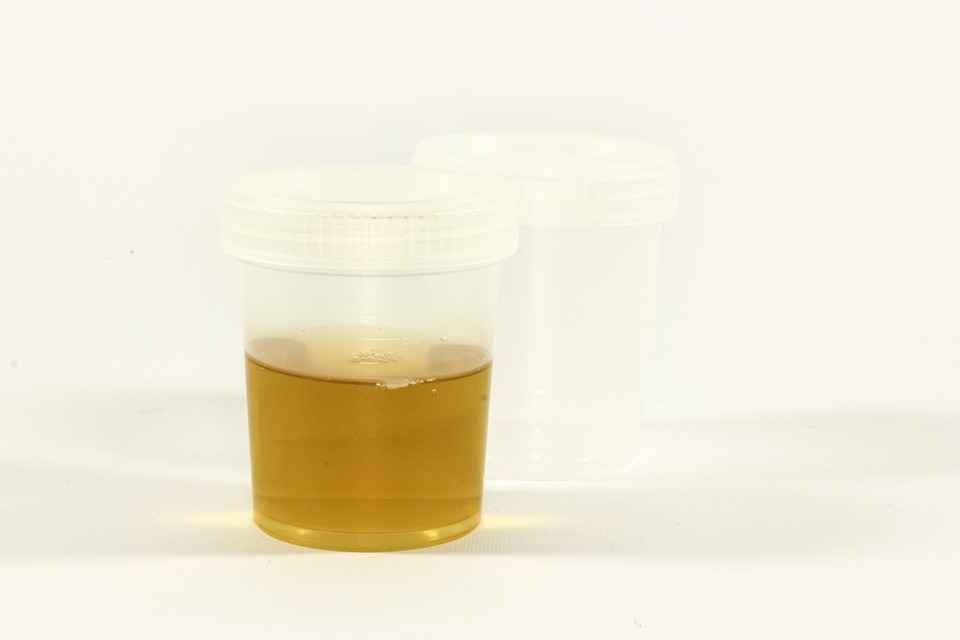Epithelial Cells in Urine: normal range, what it's results indicate

Medically Reviewed By
Dr. Ragiinii Sharma
Written By Dr Divya Rohra
on Feb 28, 2022
Last Edit Made By Dr Divya Rohra
on Jan 9, 2025

The cells that line the surface of our body are known as epithelial cells. These are found in all parts of the body like blood vessels, skin, urinary tract, and more. It is normal to observe the presence of few squamous epithelial cells (from the external urethra) and transitional epithelial cells (from the bladder) in the urine, however, an increased number of epithelial cells in urine are indicative of some underlying health issues. In this article, have a look at the acceptable normal range of epithelial cells in urine. Also, learn about the health conditions that can exist due to abnormal levels of epithelial cells in urine.

Struggling with a renal infection or kidney disease isn't a lighthearted matter. Lack of targeted treatment can impair renal function and lead to a diminished quality of life. Instead of subjecting yourself to such complications in the future, take a step towards early testing to rule out any possible risks.
In this Article
Normal Value of Epithelial Cells in Urine
The normal value of epithelial cells in the urine sample is not dependent on your age or gender. The normal value of squamous epithelial cells present in the urine sample is approximately less than or equal to 15 - 20 cells per high power field (HPF).
Result Interpretation
The level of squamous epithelial cells per HPF greater than 15 - 20 cells indicates contamination in the urine sample. More than 15 epithelial cells per HPF in the urine sample indicates improper functioning of the kidney. The results of epithelial cells in a urinalysis report are indicated by words such as ‘few’, ‘moderate’, or ‘many’ cells. The presence of few cells indicates that the number of epithelial cells in the urine sample lies within the normal range whereas the presence of moderate or many cells indicates the presence of a medical condition such as:
- Yeast infection
- Urinary tract infection
- Liver disease
- Kidney disease
- Cancer

It's not always that the presence of moderate or many cells in the urine sample is indicative of health disease. Sometimes a high level of epithelial cells in the urine sample are present because of the improper urine sample collection procedure.
Takeaway
The epithelial cells in a urine sample are detected through urinalysis. Some epithelial cells in the urine sample are normal. However, if you observe a higher concentration of epithelial cells in your urinalysis test report, you must consult your doctor once. Also, remember that it is not necessary that the high levels of epithelial cells in your urine compulsorily indicate some underlying health disease.
Frequently Asked Questions (FAQs)
-
How can I get the test of epithelial cells in my urine sample done?
You can test the presence of epithelial cells in your urine sample by opting for a urinalysis test. You can simply book the test at Redcliffe labs by either calling our lab or booking your test online. We will get your sample collected from home by sending our phlebotomist absolutely free of cost.
-
What can cause an increase in the epithelial cells in your urine?
Some major risk factors like kidney stones, diabetes, weakened immune system, family history of kidney disease, high blood pressure, pregnancy, and enlarged prostate gland can lead to an increase in the number of epithelial cells in your urine sample.
-
How can I decrease the presence of the number of epithelial cells in the urine sample?
Certain modifications in your lifestyle can help you decrease the number of epithelial cells in your blood. These changes include:
- Avoid high cholesterol food
- Control diabetes
- Limit salt intake
- Avoid alcohol consumption
- Increase physical activity
- Lose weight
- Quit smoking
- Eat a healthy diet that includes fresh vegetables, fruits, and whole grains
Leave a comment
24 Comments
Johnson
Feb 10, 2025 at 3:18 PM.
Pulse cell 0-1 Hpf, Epithelial cells (+), spermatozoa 1-2hpf and other tests are normal...I do experience pains in my male organ and around the area and the skin is changing colour too... what could cause these Dr?
Myhealth Team
Feb 10, 2025 at 7:45 PM.
Your urine test shows minimal findings (spermatozoa, pus cells, epithelial cells), which may not be significant. However, pain and skin discoloration in the male organ could indicate infection (UTI, balanitis), skin conditions (lichen sclerosus, fungal infection), trauma, or STIs. Consult a urologist for a proper diagnosis and treatment. Avoid self-medication and maintain hygiene.
Samia shimu
Jan 7, 2025 at 9:52 AM.
My epithelial cells ase 3-5. Is it normal or what i should do??
Myhealth Team
Jan 7, 2025 at 10:00 AM.
Epithelial cells in urine are generally normal in low numbers, such as 3-5 per high-power field. A small amount may not be concerning, but if you're experiencing symptoms like pain, frequent urination, or discomfort, it’s a good idea to consult your doctor. They may evaluate for urinary tract infections or other conditions.
Gurmit pabla
Dec 5, 2024 at 5:56 AM.
My squamous epithelial in urine test is ( 21-50) abnormal. What does this indicates.
Myhealth Team
Dec 6, 2024 at 5:57 PM.
The presence of squamous epithelial cells in urine, especially in higher numbers like 21-50, can indicate contamination of the urine sample, often from the skin or the genital area. In some cases, it may also point to a urinary tract infection (UTI) or inflammation. If you don't have symptoms like burning or frequent urination, it might just be a sign of sample contamination. However, if you are experiencing symptoms, it’s important to consult a healthcare provider for further investigation.
PERPHY
Dec 4, 2024 at 11:57 AM.
PUD CELL:12-14HPF, EPITHELIAL CELL: MANY Pls Doc, How bad is it?
Myhealth Team
Dec 6, 2024 at 5:59 PM.
The presence of 12-14 PUS cells (white blood cells) per high-power field (HPF) and many epithelial cells in the urine test could indicate an infection or inflammation in the urinary tract. The high number of pus cells suggests the possibility of a urinary tract infection (UTI) or other urinary issues like inflammation or irritation.
It’s important to see a doctor who can evaluate these results along with your symptoms. A urine culture might be needed to confirm the infection and determine the best treatment.
shyamla
Nov 20, 2024 at 7:16 AM.
Epi cells 18-20; Bacteria - present ; cancer patient chemo tablet is taking ; is it a urinary tract infection
Myhealth Team
Nov 21, 2024 at 12:02 PM.
The presence of epithelial cells (18-20) and bacteria in the urine, along with chemotherapy, suggests a possible urinary tract infection (UTI). It’s important to consult a doctor for a urine culture test and start appropriate antibiotics. Stay hydrated to help flush out the bacteria.
Reshma
Nov 4, 2024 at 5:53 PM.
Urine albumin trace Urine sugar nil Puscells 8-10 Epi cells numerous/ hpf /hpf Rbc nil
MyHealth Team
Nov 5, 2024 at 5:16 AM.
Hi Reshma, The urine test indicates trace albumin, which may suggest mild kidney issues, and no sugar, indicating no diabetes. The presence of 8-10 pus cells and numerous epithelial cells may point to a urinary tract infection. Follow up with a healthcare provider for further evaluation.
Marrissa
Oct 26, 2024 at 7:37 PM.
My squamos epithelial cells is 6-10 abnormal what does that mean???
Myhealth Team
Oct 28, 2024 at 8:50 AM.
A finding of 6-10 abnormal squamous epithelial cells typically indicates irritation or inflammation in the tissue. This could be due to an infection, inflammation, or cellular changes that may require further investigation, such as dysplasia or pre-cancerous conditions. It's important to discuss these results with your healthcare provider for appropriate guidance and potential further testing.
Geraldine
Oct 24, 2024 at 11:15 AM.
Pus cells 0-2/hpf and Epithelial cells 7-9/hpf, is it normal doc
Myhealth Team
Nov 25, 2024 at 1:25 PM.
The presence of 3-5 epithelial cells in a urine test is generally considered normal and not a cause for concern. If you experiencing any difficulties you can take consultation from a doctor.
geraldine
Nov 23, 2024 at 7:59 PM.
Is it a concern if my ep. cells numbers are 3-5?
Myhealth Team
Oct 30, 2024 at 2:57 PM.
Pus cells (0-2/hpf) are generally normal, indicating no significant infection. Epithelial cells (7-9/hpf) can vary; a small number is usually fine, but higher counts may indicate irritation. Discuss these results with your doctor for a thorough interpretation and guidance based on your health.
Subhasis majumdar
Oct 16, 2024 at 9:58 AM.
My epithelial cells 15 to 20 with sheets
Myhealth Team
Oct 17, 2024 at 4:32 PM.
Having 15 to 20 epithelial cells per high-power field in your urine, especially with sheets, may indicate a urinary tract infection (UTI), kidney issues like glomerulonephritis, or possible contamination of the urine sample. It's essential to consult a healthcare professional for a proper evaluation and further testing to determine the underlying cause.
Nana K
Oct 10, 2024 at 9:11 PM.
Pus cells: 2/1 Epithelia cells: 2/1 Red blood cells: 0/1 Specific gravity: 1.015 PH: 7 I am a 33 year old man. Is this urinalysis normal?
Myhealth Team
Oct 13, 2024 at 6:35 PM.
Your urinalysis results are mostly normal: pus cells (2/1) are slightly elevated, which may indicate mild inflammation, while epithelial cells (2/1) are normal, red blood cells (0/1) show no blood, specific gravity (1.015) is normal, and pH (7) is neutral. Overall, it’s advisable to consult your healthcare provider for further interpretation, especially regarding the elevated pus cells.
kirsten
Oct 9, 2024 at 5:11 AM.
hi! my pus cells 0-2 rbc: 0-2 protein: negative sugar: negative but the epithelial cells: many is that normal? or concerning? ty
Myhealth Team
Oct 13, 2024 at 6:45 PM.
Your urinalysis results are mostly normal, with pus cells (0-2), RBCs (0-2), protein (negative), and sugar (negative). However, the presence of many epithelial cells may indicate sample contamination or potential infection/inflammation. It's advisable to consult your healthcare provider for further evaluation and guidance.
Rumisha lyamuya
Sep 3, 2024 at 11:17 AM.
Hi Dr a person of 45 had a test and they saw pus cells seen(1-5PHPF) and Micro only epithelial cells seen is that normal ?
MyHealth Team
Sep 3, 2024 at 12:43 PM.
Hi Rumisha, Pus cells (1-5 per high power field) and only epithelial cells in a test may suggest a mild infection or inflammation, It’s best to consult a doctor for a detailed evaluation and appropriate treatment if needed.
Nikki
Jul 31, 2024 at 8:17 AM.
What is the interpretation for the following urinalysis results: color: yellow pH: 6.5 specific gravity: 1.020 albumin: positive (3) sugar: positive (4) character: turbid ketone: negative blood: positive (2) bilirubin: negative casts: none crystals: none pus cells: 2-4/hpf red blood cells: 20-25/hpf epithelial cells: few a. urates/phosphates: few
MyHealth Team
Jul 31, 2024 at 10:03 AM.
The urinalysis results show several abnormalities. The presence of significant protein (albumin) and glucose in the urine suggests potential kidney involvement, likely related to diabetes. Turbid urine, along with moderate blood and a high number of red blood cells, indicates possible kidney disease or infection. Further evaluation by a healthcare provider is necessary to determine the underlying cause and appropriate treatment.
Nicki
Jun 10, 2024 at 9:18 PM.
What does the following data indicate? Urine White Blood Cells - normal (0-5) Urine Red Blood Cells- normal (0-3) Epithelial Cells HPF - out of range (17)
MyHealth Team
Jun 11, 2024 at 7:25 PM.
The data suggests that while the levels of white blood cells (WBCs) and red blood cells (RBCs) in the urine are within normal ranges, the count of epithelial cells per high-power field (HPF) is elevated, being at 17, which is out of range.
Epithelial cells are typically shed from the lining of the urinary tract, and elevated levels could indicate inflammation, irritation, or infection in the urinary tract. However, other factors such as contamination during sample collection or menstruation can also affect epithelial cell counts. Further evaluation by a healthcare provider may be necessary to determine the cause of the elevated epithelial cell count and whether any treatment or follow-up is required.
Gem
May 31, 2024 at 12:11 AM.
WHITE BLOOD CELLS 27 /uL RED BLOOD CELLS 7 /uL EPITHELIAL CELLS Moderate
MyHealth Team
Jun 3, 2024 at 5:25 PM.
Having a white blood cell count of 27 /uL and a red blood cell count of 7 /uL, along with moderate epithelial cells, may indicate an infection or inflammation in the urinary tract or another underlying issue. White blood cells are typically elevated in response to infection, while red blood cells may indicate bleeding or kidney problems. Epithelial cells are commonly shed from the urinary tract lining and may increase due to irritation or infection. It's essential to consult a healthcare professional for further evaluation and proper diagnosis, as additional tests may be needed to determine the cause and appropriate treatment.
Rael
May 19, 2024 at 6:17 PM.
Hello doc... Pus cells 25-30/HPF,is that normal?
Myhealth Team
May 20, 2024 at 8:06 AM.
Hello! Pus cells in the urine, measured as 25-30 per high power field (HPF), could indicate inflammation or infection in the urinary tract. While a few pus cells may be normal, higher levels can suggest a urinary tract infection (UTI) or other underlying issues. Please discuss this with your doctor for treatment.
Robert
May 12, 2024 at 3:49 AM.
Dear Doctor, My urinalysis shows following in abnormal range. Kindly advise if I should see doctor for treatmen. Leukocyte Esterase 1+ Blood 2+ Urine Sediment Leukocyte 8 - 10 Erythrocyte 11 - 20 Epithelial Squamous 1+ Thank you.
Myhealth Team
May 13, 2024 at 10:46 AM.
Yes, it's advisable to see a doctor for further evaluation and treatment. The presence of leukocyte esterase, blood, leukocytes, and erythrocytes in the urine sediment, along with squamous epithelial cells, suggests potential urinary tract inflammation or infection. A healthcare provider can perform additional tests, such as urine culture, to determine the cause of these abnormalities and recommend appropriate treatment. Early intervention can help prevent complications and promote recovery.
Melissa
Apr 5, 2024 at 8:54 AM.
Our family has a history of kidney issues, a few relatives currently on dialysis and my mother died of urothilial cancer. My daughter is 27, had a tremendous amount of blood in urine. A few weeks later was able to see her physician. He ordered a blood panel, which was fine, but on her urine panel, her squamous epithelial cell count was 40-60. There was occult blood trace, and protein trace. Her leukocyte esterase was 2+. There was few bacteria, and hyaline cast was 0-5. Everything else seemed to be in the normal range. What can be deduced from these results? Thank you.
MyHealth Team
Apr 10, 2024 at 11:51 AM.
Hi Melissa, Given the family history of kidney issues and the presence of blood, protein, and other abnormalities in your daughter's urine panel, further evaluation by a specialist is advisable. These findings may indicate inflammation, infection, or other urinary tract issues that require attention. It's important for her to follow up with her physician for appropriate management and further testing as needed.
Rasant Pradhan
Jan 12, 2024 at 12:05 PM.
Epithelial cells 2-3 it's normal
Myhealth Team
Jan 16, 2024 at 7:37 AM.
Finding 2-3 epithelial cells in urine is typically within the normal range and might not be a cause for concern. However, individual variations exist, and consulting a healthcare professional for personalized advice is recommended to ensure an accurate interpretation based on specific health conditions and circumstances.
megan molkentin
Dec 11, 2023 at 6:36 AM.
I've been working with my Doctor and he found moderate cells from a swab in my mouth so how can this test come from my urine?
Myhealth Team
Dec 15, 2023 at 12:26 PM.
Moderate cells from a mouth swab indicate a test related to oral health. If a urine test is also being done, it's for a separate assessment, likely focusing on kidney function or detecting urinary issues. Discuss with your doctor for clarity on the specific tests and their purposes.
Corina Sedova
Dec 7, 2023 at 4:04 AM.
PH 7 Protein nil Glucose nil Specific gravity 1.025 Leucocytes < 10 Erythrocytes < 10 Squamous epi cells 26 45 year old female should I be worried about any of these results .
Myhealth Team
Dec 8, 2023 at 9:22 AM.
The urine analysis results seem generally normal, except for a higher count of squamous epithelial cells, which might be due to contamination during sample collection. Consult with a healthcare professional for a more personalized interpretation based on your health context.
Asmina Nourin
Nov 19, 2023 at 8:02 PM.
Pus cells 4–6 Epithelial cells 30-35 20age old girl , ith sadaranayallalo
Myhealth Team
Nov 20, 2023 at 11:12 AM.
Pus cells 4-6 and epithelial cells 30-35 in a urine sample for a 20-year-old girl are within normal range.
Veenareddy Veena
Aug 28, 2023 at 10:03 AM.
Puscell 4-6/hpf. Epicells 5_7/hpf is it normal r wt doctor
Myhealth Team
Aug 29, 2023 at 7:15 AM.
The pus cell and epithelial cell counts you mentioned are generally within normal ranges for a urine test, but it's best to consult a doctor for a proper interpretation based on your overall health and medical history.
Deepika Jitendra Chauhan
Nov 1, 2022 at 6:00 AM.
What if my epithelial count are much less than normal range?
Myhealth Team
Nov 3, 2022 at 7:04 AM.
Thank you deepika for your enquiry. You may ask your query on our health community https://redcliffelabs.com/health-community/ and you would receive an appropriate response and along with that you would also receive health management guidelines and content for better health management.





